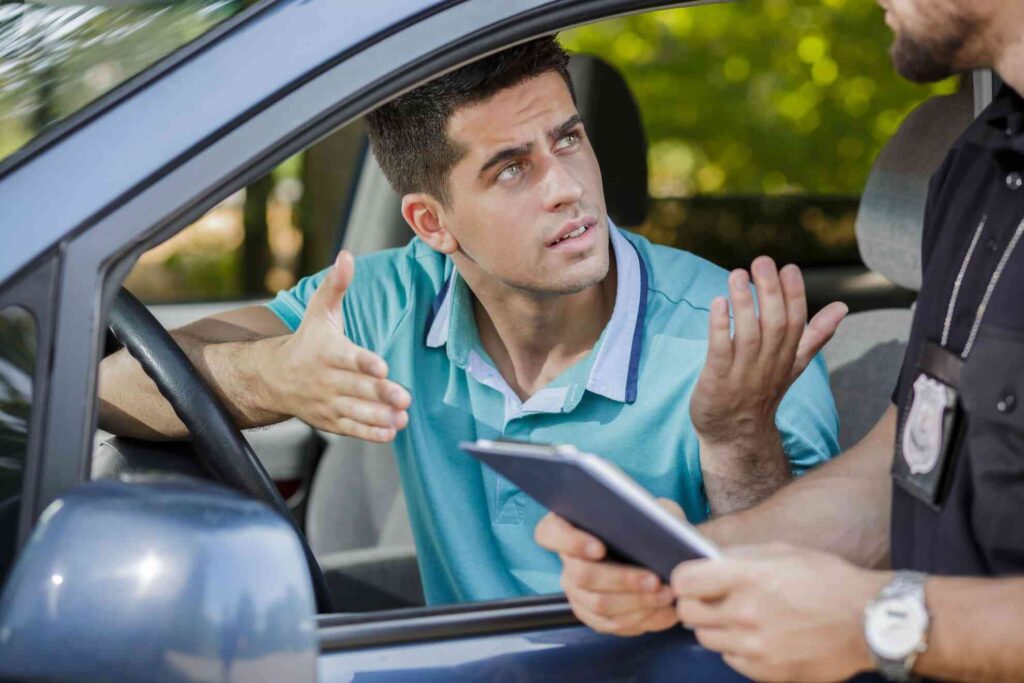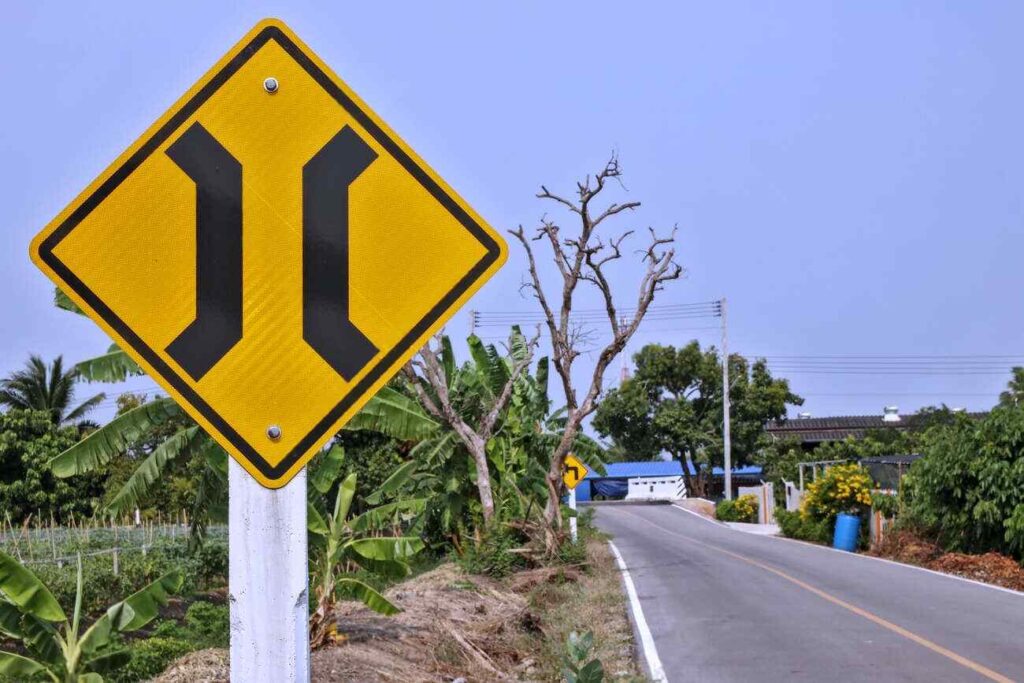Picture this: You’re driving home after a long day, and suddenly, flashing lights appear in your rearview mirror. Your stomach drops as you pull over, and a police officer hands you a traffic ticket for speeding. They ask you to sign it. Your mind races do you have to sign a traffic ticket? What happens if you don’t? Does signing mean you’re guilty? If this sounds familiar, you’re not alone. Many drivers face this exact situation and feel unsure about what to do.
The quick answer is yes, in most cases, you must sign a traffic ticket. But there’s more to it than that. This blog post will break down everything you need to know about signing a traffic ticket. We’ll cover what a traffic ticket is, the legal requirements for signing, the consequences of refusing, what signing actually means, and practical steps to take if you get one. By the end, you’ll feel confident handling a traffic citation and understanding your rights. Let’s get started.
What Is a Traffic Ticket and Why Do You Sign It?
A traffic ticket is a legal notice given by a police officer when you break a traffic law. It’s also called a citation. Common reasons for getting a ticket include speeding, running a stop sign, or not wearing a seatbelt. The ticket lists the violation, the fine you might owe, and a deadline to respond usually by paying the fine or going to court.
When the officer asks you to sign the ticket, it’s not a trick. Signing doesn’t mean you’re saying, “Yes, I did it.” Instead, it’s your way of confirming you’ve received the ticket and understand you need to deal with it. Think of it like signing for a delivery you’re not agreeing with what’s inside the box; you’re just saying you got it.
In most places, signing is a required step. It’s your promise to either pay the fine or show up in court to address the charge. Without your signature, the officer has no proof you’ll follow through, which can lead to bigger problems. We’ll talk about those later. For now, know that signing a traffic ticket is standard practice, and it’s meant to keep the process moving smoothly.
Legal Requirements for Signing a Traffic Ticket
So, do you have to sign a traffic ticket? Legally, yes, in most cases. But the rules can differ depending on where you are. Let’s look at how this works, focusing mainly on the United States since that’s where most readers are likely based.
How It Works in the U.S.
In the United States, signing a traffic ticket is a must in nearly every state. It’s part of the legal process to ensure you’re aware of the violation and will respond to it. Here are some examples:
-
California: The California Vehicle Code says you have to sign a traffic ticket. It’s your promise to appear in court if needed. If you don’t sign, the officer can arrest you right there.
-
Texas: Texas law requires you to sign the ticket too. It’s a written commitment to either pay the fine or go to court. Refusing can land you in custody.
-
Florida: In Florida, signing is mandatory as well. It shows you’ve received the citation. Not signing can lead to an arrest or extra charges.
While the details might change from state to state, the idea stays the same: signing a traffic ticket is required. It’s not optional unless the law in your area says otherwise which is rare. Officers need your signature to move the case forward without forcing you into court immediately.
Differences Around the World
Outside the U.S., things can vary more. For example:
-
Canada: In some Canadian provinces, like Ontario, you might not have to sign the ticket on the spot. Instead, you get a notice and have to respond later.
-
United Kingdom: In the UK, traffic tickets are called fixed penalty notices. They don’t usually require a signature. You just get the notice and decide whether to pay or challenge it.
Since laws depend on location, it’s smart to check the rules where you’re driving. But for this post, we’ll stick to U.S. laws since they apply to most of our readers. If you’re traveling abroad, a quick search of local traffic rules can save you a headache.
Why the Law Requires It
Why make signing mandatory? It’s about accountability. Your signature proves you know about the ticket and won’t just ignore it. Without it, officers might have to take you to the station to ensure you face the charge, which wastes everyone’s time. Signing keeps things simple and lets you handle the ticket on your terms pay it, fight it, or take another route.
What Happens If You Refuse to Sign a Traffic Ticket?
Let’s say you’re upset about the ticket. Maybe you don’t think you were speeding, or you feel the officer got it wrong. You might wonder, “Can I just refuse to sign?” Technically, yes, you can refuse. But it’s a bad idea. Here’s why.
Immediate Trouble
In most U.S. states, refusing to sign a traffic ticket gives the officer the right to arrest you. It’s seen as not cooperating with the law. Instead of driving away with a ticket to deal with later, you could end up in handcuffs, heading to the police station. That’s a lot more hassle than signing and moving on.
Take this real example: In 2019, a driver in Georgia refused to sign a ticket for running a red light. He argued he didn’t do it and thought signing meant he was guilty. The officer arrested him for non-compliance. Later, the court explained that signing wasn’t an admission of guilt, but the damage was done arrest, booking, and extra fees.
Bigger Problems Down the Road
Refusing to sign doesn’t make the ticket disappear. You’ll still have to deal with the violation, and now you might face added charges, like resisting an officer. These can mean:
-
Higher fines
-
Points on your driving record
-
Possible jail time (in rare cases)
-
A tougher time in court if you fight the ticket
Judges don’t look kindly on drivers who refuse to sign. It can make you seem uncooperative, which might hurt your case if you try to contest the citation later.
Why It’s Not Worth It
Refusing to sign doesn’t change the facts of the violation. If you think the ticket is unfair, you can fight it in court after signing. That’s the smarter way to handle it. Signing just gets you out of the stop faster and avoids turning a small issue into a big one.
What Does Signing a Traffic Ticket Really Mean?
Here’s where a lot of confusion comes in. Many drivers hesitate to sign a traffic ticket because they think it’s the same as saying, “I’m guilty.” That’s not true. Let’s clear this up.
It’s Not Admitting Guilt
When you sign a traffic ticket, you’re not pleading guilty. You’re only saying, “I got this ticket, and I’ll deal with it.” Most tickets even say this right on the paper. For instance, a typical ticket might include a line like: “Your signature is not an admission of guilt; it’s a promise to respond.”
Legal experts agree. According to the American Automobile Association (AAA), signing a citation is just a procedural step. It doesn’t mean you agree with the officer or accept the penalty. It’s about acknowledging the process, not the outcome.
What You’re Agreeing To
By signing, you’re promising one of two things:
-
You’ll pay the fine by the due date.
-
You’ll show up in court to address the ticket.
That’s it. You’re not locking yourself into anything else. After signing, you still have choices, which we’ll cover next.
Your Options After Signing
Once you’ve signed the ticket, you’re not stuck. You can:
-
Pay the Fine: If you don’t want to deal with court, pay the fine online, by mail, or at the courthouse. This usually ends the case, but it might add points to your license or raise your insurance rates.
-
Fight the Ticket: If you think the ticket is wrong, you can contest it in court. You’ll need to show up on your court date and explain your side. You might win and avoid the fine altogether.
-
Take Traffic School: Some states let you attend traffic school to lessen the penalty. This can keep points off your record or even dismiss the ticket. Check with your local court to see if it’s an option.
Signing doesn’t limit you it opens the door to these paths. You get to decide what’s best based on your situation.
What to Do If You Receive a Traffic Ticket
Getting a traffic ticket isn’t fun, but it doesn’t have to be a disaster. Here’s a simple guide to handle it like a pro.
1. Stay Calm During the Stop
When the officer pulls you over, take a deep breath. Be polite and respectful, even if you’re frustrated. Don’t argue about the ticket on the side of the road—it won’t change anything and might make things worse. Your goal is to get through the stop quickly and safely.
2. Read the Ticket Carefully
Before you sign, look over the ticket. Check the violation, the fine, and the deadline. If something doesn’t make sense, ask the officer to explain. They have to tell you what it’s about. Knowing the details helps you plan your next move.
3. Sign the Ticket
Go ahead and sign it. As we’ve covered, it’s not admitting guilt, and refusing can lead to arrest. Signing lets you leave the scene and deal with the ticket later.
4. Weigh Your Options
Back home, think about what you want to do:
-
Pay It: Quick and easy, but it might cost you in fines or insurance hikes.
-
Contest It: Takes effort, but you could win if you have a good case—like proof you weren’t speeding.
-
Traffic School: A middle ground that might save your record. Not every state offers this, so confirm with your court.
5. Get Help If Needed
If the ticket is serious—like a big fine or a charge that could suspend your license—talk to a lawyer. They can tell you if it’s worth fighting and how to do it. Yes, it costs money, but it might save you more in the long run.
6. Act Before the Deadline
Don’t let the ticket sit. Missing the deadline can lead to:
-
A suspended license
-
Extra fines
-
A warrant for your arrest
Mark the due date on your phone or calendar and take care of it early.
For more information visit Traffic signs test.
Do You Have to Sign a Traffic Ticket: Final Thoughts
Getting a traffic ticket can throw you off, but it’s not the end of the world. Do you have to sign a traffic ticket? Yes, in most cases, and it’s the smart move. Signing isn’t admitting guilt—it’s just saying you’ll deal with the citation, whether by paying, fighting, or taking another step. Refusing only makes things harder, with risks like arrest or extra charges.
If you get a ticket, stay calm, sign it, and figure out your plan. Read the details, decide your next move, and act before the deadline. You’ve got options, and knowing what signing means puts you in control.
Have you dealt with a traffic ticket before? Drop your story in the comments I’d love to hear how you handled it. Or if you’ve got questions, ask away. Let’s keep the conversation going!


